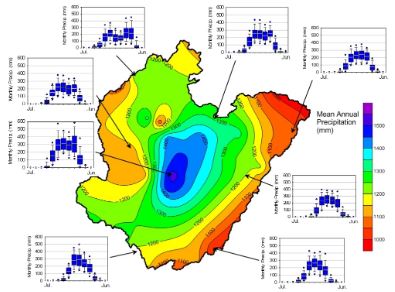 WAYLEN – Socializing the rain: human adaptation to ecological variability in a fishery, Mweru-Luapula, Zambia
WAYLEN – Socializing the rain: human adaptation to ecological variability in a fishery, Mweru-Luapula, Zambia
Christopher M. Annear, Peter R. Waylen
Article first published online: 23 AUG 2019 Journal of Political Ecology
DOI: 10.2458/v26i1.23246
ABSTRACT: Rainfall drives fishery fertility in Mweru-Luapula, thus rainfall variability contributes to frequent changes in fishing catches. Fishers and traders have adapted their institutions to this variable ecology in a variety of ways, including learning to read the fishery for productive periods and practicing multiple modes of income procurement. By accurately identifying inter-annual, inter-decadal, and longer spans of rainfall trends, future high and low yields can be forecast. This article presents and analyzes annual rainfall in the fishery from 1916-1992 and quantitative fish market data comprised of observed fish catch numbers by species in three markets from September 2004 to September 2005. It uses political ecology to better understand fish production, trade, and subsistence in this South-Central African freshwater fishery. We combine qualitative analysis of fisher and marketer perceptions of the fishery and knowledge of rainfall patterns to show how human behavior is not “tragically” driven, but instead based on the state of the ecological, sociocultural, and socioeconomic environment at a given time.
Read the full publication at Journal of Political Ecology